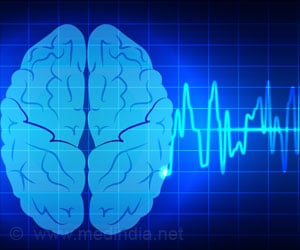- Children exposed to epilepsy drug in the womb are more likely to do poorly on school tests.
- Going-to-be mothers need to be well informed about risks and pros of seizure control and they must be weighed against the cons.
- Children of mothers who took the anti-epileptic drug sodium valproate were more closely linked to poorer school test results.
Epilepsy and Pregnancy
Women with epilepsy are currently advised to continue taking epilepsy drugs even during pregnancy. Taking the seizure controlling drugs can prevent convulsions that can harm both mother and the unborn child. However, there have been studies that have linked taking epilepsy drugs during pregnancy to neurodevelopmental disorders in children.Study Overview
The study was aimed to assess the risk to children who had an exposure to anti-epileptic drugs in the womb based on real life circumstances.Healthcare information was collected from the Secure Anonymous Information Linkage (SAIL) databank and national school test (key stage 1) data to compare the academic performance of 7-year-olds in Wales born to mothers with epilepsy.
Based on the prescription patterns of the mother, the data was divided into five groups: treatment with one drug either carbamazepine, lamotrigine or sodium valproate, a combination of several drugs and no drug treatment (control group).
Study findings
- Fifty four percent of mothers who were taking anti-epileptic drugs were taking sodium valproate, either in combination with other drugs or alone.
- Children born to mothers who had been prescribed carbamazepine or lamotrigine, or nothing, performed just as well on school tests as those born to mothers without epilepsy.
- Children of mothers who took sodium valproate during their pregnancy performed 10.5 to 13 percent less well on all KSI tests than those in the control group.
- Children born to mothers who had been prescribed a cocktail of epilepsy drugs performed even worse with their scores 19-22 percent lower than the control group.
However, it is also important to understand that while studies do point toward the risk of cognitive effects in the children of mothers prescribed sodium valproate and multiple drugs, some epilepsies are difficult to treat without these treatment regimens.
Limitations of the study
- It is a population study (based on a particular group or population of mothers)
- Influential factors such as mothers' IQ, weight, alcohol consumption, the doses of epilepsy drugs prescribed or intake of folic acid around conception were not taken into consideration.
- Lacey A S, Pickrell W O, Thomas R H, Kerr M P, White C P, Rees M I, "Epilepsy drug exposure in womb linked to significantly poorer school test results", Journal of Neurology, Neurosurgery & Psychiatry (2018) DOI: 10.1136/jnnp-2017-317515
Source-Medindia
















